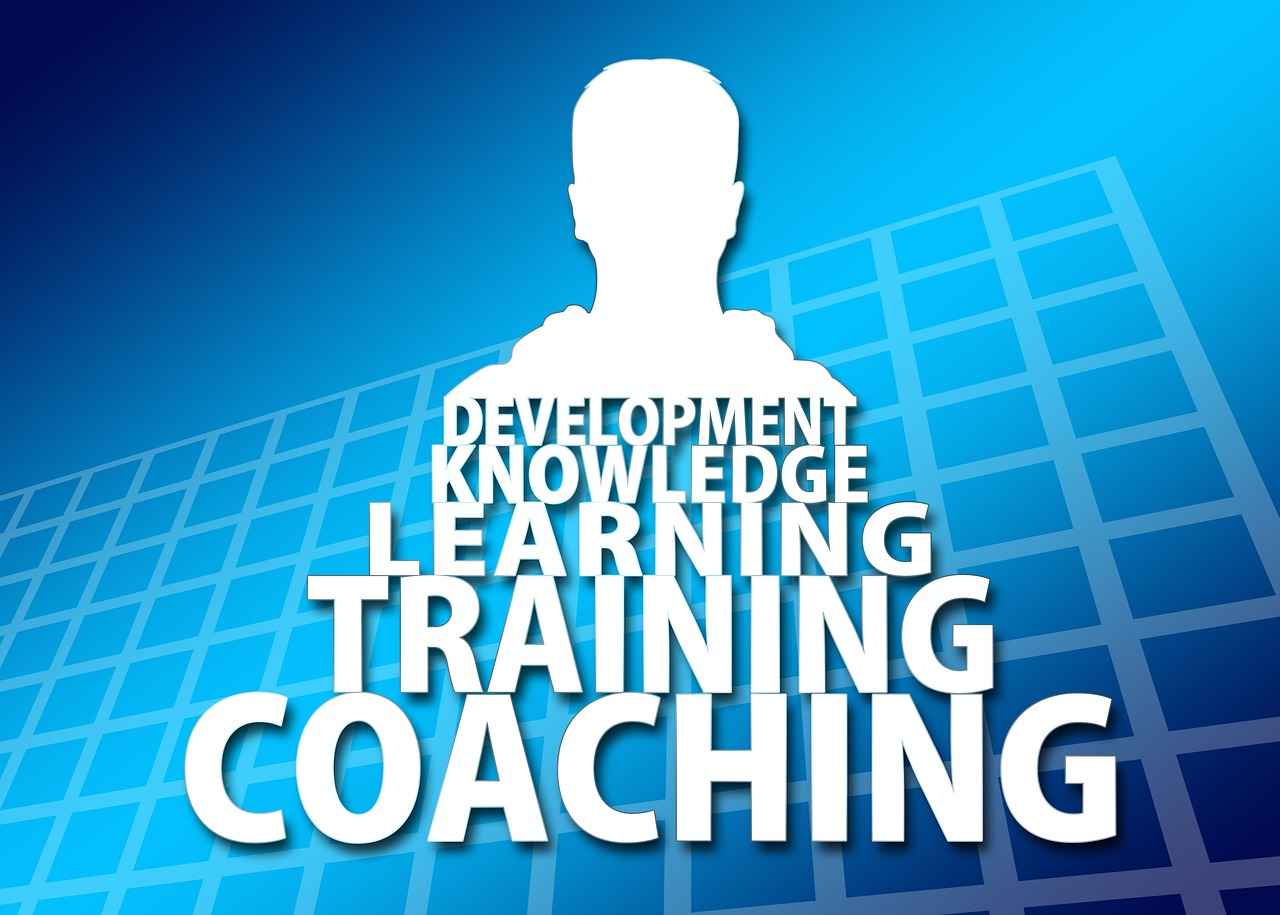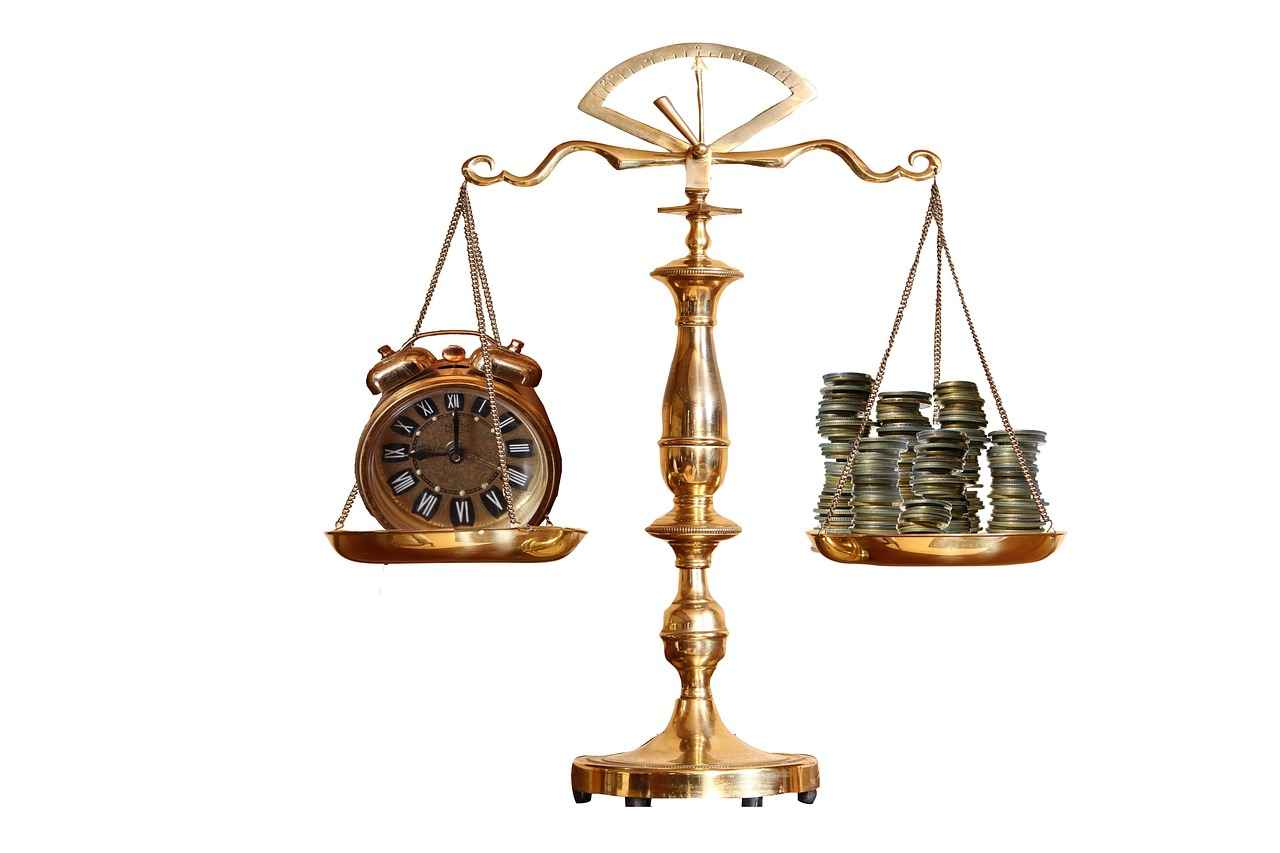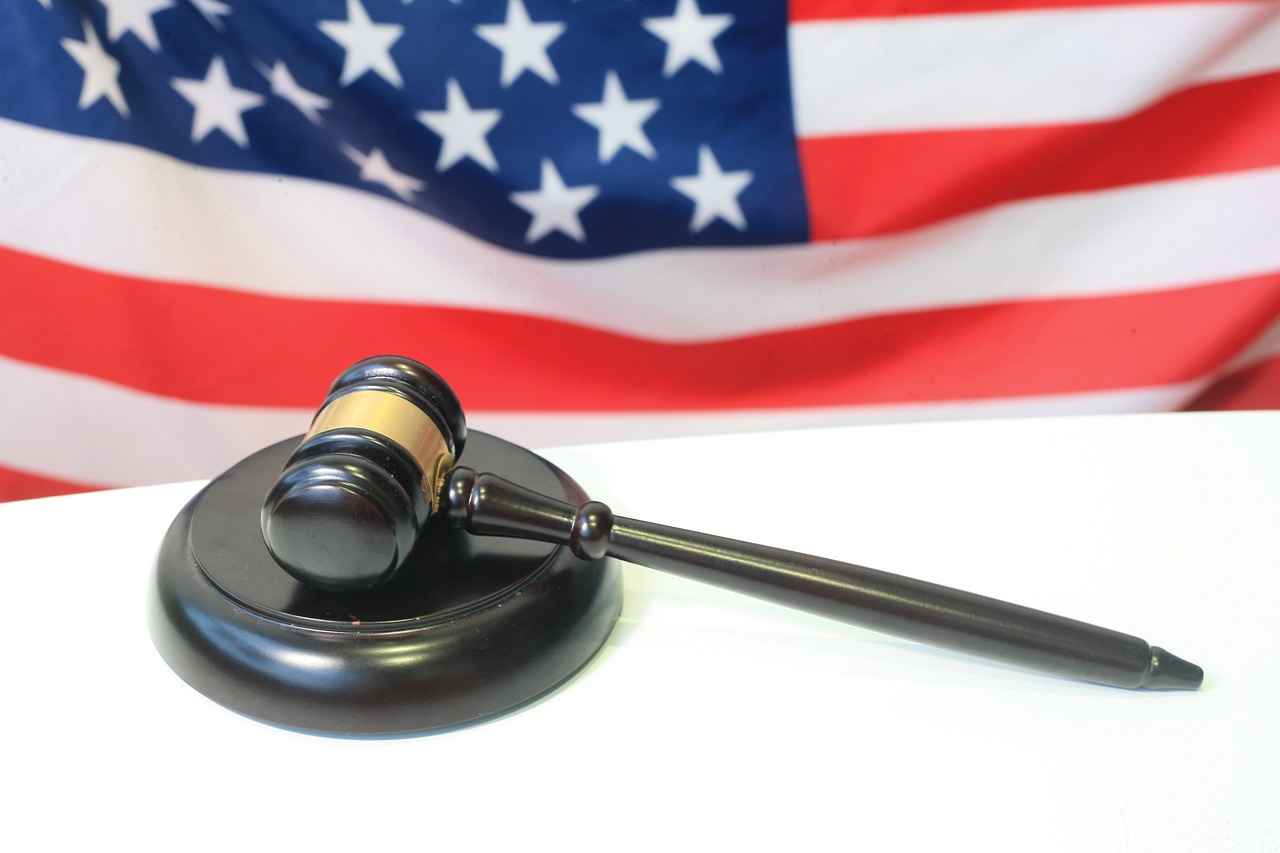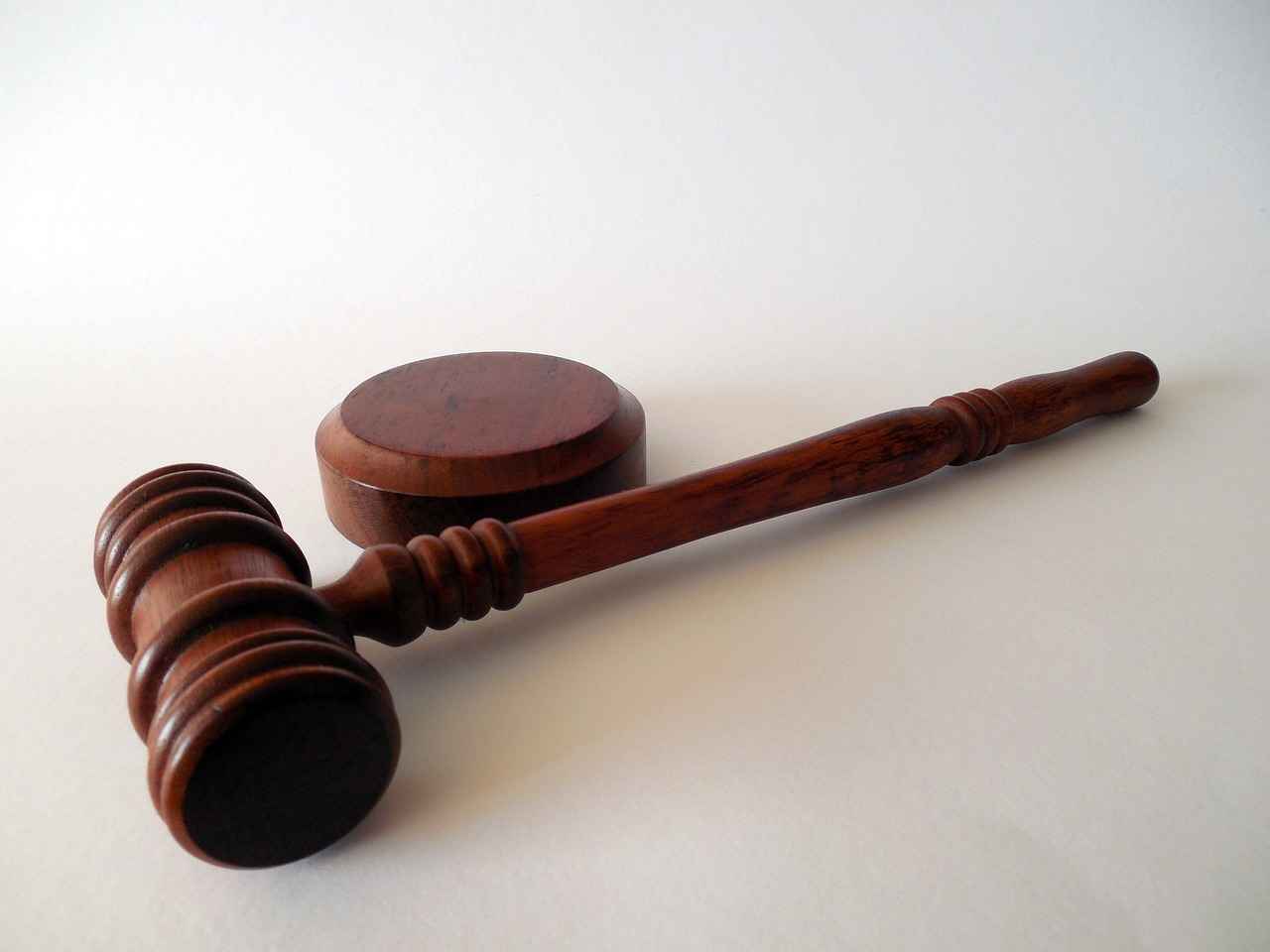In this article, we will explore various types of legal cases and provide expert guidance on how to find qualified attorneys in Gilbert, Arizona, ensuring you make informed choices for your legal needs.
Understanding Personal Injury Cases
Personal injury cases encompass a wide range of incidents where individuals seek compensation for harm caused by another party’s negligence. Common examples include car accidents, slip and falls, and workplace injuries. It’s crucial to find a lawyer experienced in this specific area, as they will understand the nuances of personal injury law and can help you navigate the legal process effectively.
Navigating Medical Malpractice Claims
Medical malpractice involves healthcare professionals failing to provide adequate care, resulting in patient harm. This could include misdiagnosis, surgical errors, or improper treatment. Finding an attorney with a background in medical law is essential for success in these complex cases, as they can assess the standard of care and gather necessary evidence to support your claim.
Breach of Contract Disputes
Breach of contract cases arise when one party fails to fulfill their contractual obligations. This may involve business agreements, rental contracts, or service agreements. A skilled attorney can help you understand your rights, assess damages, and navigate the legal process effectively, ensuring that your interests are protected.
Resolving Property Disputes
Property disputes often involve disagreements over ownership, boundaries, or rights. These can arise in real estate transactions, landlord-tenant relationships, or inheritance issues. It’s vital to choose a lawyer familiar with real estate law to represent your interests effectively and help resolve disputes amicably or through litigation if necessary.
Landlord-Tenant Disputes Explained
Landlord-tenant disputes can arise from lease violations, evictions, or security deposit issues. An attorney specializing in landlord-tenant law can provide valuable guidance in these situations, ensuring that both parties understand their rights and responsibilities under local laws.
Understanding Defamation Cases
Defamation, which includes libel and slander, involves false statements that harm an individual’s reputation. A lawyer with expertise in defamation law can help you navigate these sensitive issues, whether you are the victim or the accused, and work towards a resolution that protects your interests.
Employment Disputes and Workers’ Rights
Employment disputes can range from wrongful termination to discrimination claims. Finding an attorney experienced in employment law is critical for protecting your rights in the workplace. They can help you understand your options, negotiate settlements, or represent you in court if necessary.
Product Liability Cases
Product liability holds manufacturers accountable for defective products that cause harm. An attorney specializing in this area can help you secure compensation for injuries sustained from unsafe products, guiding you through the process of proving negligence and liability.
Wrongful Death Claims
Wrongful death claims arise when a person’s death is caused by another’s negligence. A compassionate and skilled attorney can guide families through the legal process during this challenging time, helping them seek justice and compensation for their loss.
Class Action Lawsuits: What You Need to Know
Class action lawsuits allow a group of individuals to sue a defendant collectively. Finding a lawyer experienced in class actions is essential for navigating the complexities of these cases, as they can handle the procedural requirements and represent the interests of all plaintiffs effectively.
Assault and Battery Cases
Assault and battery cases involve intentional harm or the threat of harm. An attorney with experience in criminal law can help victims seek justice and compensation for their injuries, as well as navigate the criminal justice system if charges are involved.
Understanding Drug Offenses
Drug offenses encompass a range of illegal activities related to controlled substances. A knowledgeable attorney can provide defense strategies tailored to the specifics of your case, ensuring that your rights are protected throughout the legal process.
Finding the Right Attorney in Gilbert
When seeking legal representation in Gilbert, consider factors such as experience, specialization, and client reviews. Researching local attorneys can help you find the best fit for your legal needs. Utilize online platforms, such as Avvo or Martindale-Hubbell, to read reviews and check credentials. Additionally, look for attorneys with relevant experience in the specific area of law related to your case. Avoid red flags such as lack of communication, vague fee structures, or negative reviews. A trustworthy attorney should be transparent, responsive, and willing to discuss your case in detail.

Understanding Personal Injury Cases
Personal injury cases represent a significant area of law, where individuals seek compensation for injuries or damages caused by the negligence of another party. These cases can arise from a variety of incidents, including automobile accidents, slip and falls, workplace injuries, and defective products. The legal landscape surrounding personal injury is complex, and having a qualified attorney is crucial for navigating it effectively.
When pursuing a personal injury claim, it’s essential to understand the key elements involved:
- Negligence: This is the foundation of most personal injury cases. To succeed, you must demonstrate that the other party failed to act with reasonable care, leading to your injury.
- Damages: You must also prove that you suffered actual damages, which may include medical expenses, lost wages, and pain and suffering.
- Liability: Establishing who is liable for your injuries is critical. This can sometimes involve multiple parties, adding layers of complexity to your case.
To find the right personal injury attorney in major metropolitan areas like New York City, Los Angeles, and Chicago, consider the following strategies:
- Referrals: Start by asking friends, family, or colleagues for recommendations. Personal experiences can provide valuable insights into an attorney’s effectiveness.
- Online Research: Utilize legal directories such as Avvo or FindLaw to search for attorneys specializing in personal injury cases. Look for reviews and ratings to gauge their reputation.
- Consultations: Schedule consultations with multiple attorneys. Most personal injury lawyers offer free initial consultations. Use this opportunity to discuss your case and assess their communication style and expertise.
When evaluating potential attorneys, look for the following credentials:
- Experience: Choose an attorney with a proven track record in personal injury cases similar to yours.
- Specialization: Ensure they specialize in personal injury law, as this area requires specific knowledge and skills.
- Success Rate: Inquire about their success rate in obtaining settlements or verdicts for their clients.
Be cautious of red flags when hiring an attorney:
- High Pressure Tactics: If an attorney pressures you to sign a contract immediately, consider it a warning sign.
- Lack of Transparency: A reputable attorney should be open about their fees, process, and potential outcomes.
- Negative Reviews: Pay attention to any consistent negative feedback regarding their communication or case handling.
In conclusion, navigating personal injury cases requires a solid understanding of the law, as well as the ability to find a qualified attorney who can advocate for your rights. By utilizing referrals, conducting thorough research, and being aware of red flags, you can enhance your chances of securing a favorable outcome in your case.

Navigating Medical Malpractice Claims
Medical malpractice is a serious issue that arises when healthcare professionals fail to provide the standard of care expected in their field, resulting in significant harm to patients. This form of negligence can manifest in various ways, including misdiagnosis, surgical errors, medication mistakes, and failure to obtain informed consent. Understanding the intricacies of medical malpractice claims is crucial for victims seeking justice and compensation.
Why It’s Essential to Hire a Specialized Attorney
When pursuing a medical malpractice claim, it is imperative to find an attorney who specializes in medical law. These cases are notoriously complex, often requiring a deep understanding of both legal principles and medical practices. An attorney with experience in this field will be familiar with the nuances of medical terminology and the standards of care that apply to healthcare providers.
Key Steps to Finding the Right Attorney
- Research and Referrals: Start by seeking referrals from trusted sources, such as family, friends, or healthcare professionals. Additionally, online resources like legal directories can help identify qualified attorneys in your area.
- Check Credentials: Look for attorneys who have a proven track record in handling medical malpractice cases. Verify their educational background, bar association membership, and any special certifications in medical malpractice law.
- Read Reviews: Client reviews and testimonials can provide insight into an attorney’s reputation and success rate. Websites like Avvo and Martindale-Hubbell offer ratings and reviews that can guide your decision.
- Initial Consultations: Many attorneys offer free initial consultations. Use this opportunity to discuss your case, ask about their experience, and gauge their understanding of medical malpractice laws.
- Evaluate Communication: Effective communication is key in any legal case. Choose an attorney who listens to your concerns and explains the legal process clearly.
Understanding the Legal Process
Once you have selected an attorney, they will guide you through the legal process, which typically begins with filing a complaint against the healthcare provider. Your attorney will gather evidence, which may include medical records, expert testimonies, and witness statements, to build a strong case. It’s important to note that medical malpractice cases often involve extensive negotiations and may not always go to trial. Your attorney should be adept at negotiating settlements that fairly compensate you for your injuries.
Red Flags to Avoid
When selecting a medical malpractice attorney, be wary of certain red flags. Avoid attorneys who lack experience in medical malpractice cases or those who do not provide clear communication regarding fees and case strategies. Additionally, be cautious of attorneys who guarantee a specific outcome; no attorney can predict the results of a legal case with certainty.
Conclusion
Navigating medical malpractice claims can be a daunting process, but with the right legal representation, victims can pursue the justice they deserve. By carefully researching and selecting a qualified attorney, you can increase your chances of a successful outcome in your case.

Breach of Contract Disputes
Breach of contract cases occur when one party fails to meet their obligations as outlined in a legally binding agreement. This can manifest in various ways, including failure to deliver goods, incomplete services, or non-payment. Understanding your rights in such situations is crucial, and enlisting the help of a skilled attorney can significantly improve your chances of a favorable outcome.
When dealing with a breach of contract, it is essential to first assess the nature of the contract itself. Contracts can be written, oral, or implied, and the type will influence how the breach is interpreted legally. For instance, written contracts are typically easier to enforce, as they provide clear evidence of the agreed-upon terms. In contrast, oral contracts can be more challenging to prove and enforce.
To navigate the complexities of breach of contract cases, consider the following steps:
- Document Everything: Keep detailed records of all communications, agreements, and transactions related to the contract. This documentation will be vital in establishing your case.
- Consult with a Legal Expert: A qualified attorney specializing in contract law can help you understand your rights and options. They can assess the specifics of your case and advise you on the best course of action.
- Assess Damages: Determine the extent of damages caused by the breach. This may include direct financial losses, as well as consequential damages, which are losses that arise indirectly from the breach.
- Explore Resolution Options: Many breach of contract disputes can be resolved through negotiation or mediation, which can save time and resources compared to litigation. Your attorney can guide you through these processes.
When searching for an attorney to handle your breach of contract case, consider the following criteria:
- Experience: Look for an attorney with a proven track record in breach of contract cases. Their experience will be invaluable in navigating the legal system.
- Specialization: Ensure the attorney specializes in contract law. This specialization indicates a deeper understanding of the nuances involved in such cases.
- Client Reviews: Research online reviews and testimonials from previous clients. Positive feedback can provide insight into the attorney’s competence and reliability.
- Consultation: Many attorneys offer free initial consultations. Use this opportunity to gauge their approach and determine if you feel comfortable working with them.
In major metropolitan areas like New York City, Los Angeles, and Chicago, you can utilize various platforms to find qualified attorneys. Websites like Avvo, FindLaw, and Martindale-Hubbell provide directories of lawyers along with their ratings and reviews. Additionally, local bar associations often have referral services that can connect you with reputable attorneys in your area.
It is also essential to watch out for red flags when hiring a lawyer. Be cautious of attorneys who make unrealistic promises or guarantees about the outcome of your case. Additionally, avoid those who seem disinterested in your situation or rush through consultations. A good attorney should be willing to take the time to understand your case and provide thoughtful advice.
In conclusion, breach of contract disputes can be complex and challenging to navigate without the right legal support. By understanding your rights, documenting your case, and seeking a qualified attorney, you can effectively address these disputes and work towards a resolution that protects your interests.

Resolving Property Disputes
Property disputes can be complex and emotionally charged, often arising from disagreements over ownership, boundaries, or rights associated with real estate. These disputes can involve various parties, including neighbors, business partners, or family members. Understanding the nuances of property law is crucial for anyone involved in such a conflict, making it essential to select a lawyer who specializes in real estate law to protect your interests effectively.
Types of Property Disputes
- Boundary Disputes: Conflicts often arise regarding the exact borders of a property. This can lead to disagreements over fencing, landscaping, or even the placement of structures.
- Ownership Disputes: These disputes can occur when multiple parties claim ownership of the same property, often requiring extensive documentation and legal intervention to resolve.
- Easement Issues: An easement allows one party to use a portion of another’s property for a specific purpose, such as access to a road. Disputes can arise over the terms or existence of these easements.
- Land Use and Zoning Conflicts: Property owners may face challenges when local zoning laws restrict how they can use their land, leading to disagreements with local authorities or neighbors.
Choosing the Right Lawyer
When faced with a property dispute, selecting a lawyer with a strong background in real estate law is vital. Here are some steps to ensure you find the right legal representation:
- Research Experience: Look for attorneys who have extensive experience handling property disputes similar to yours. Their familiarity with local laws and regulations can significantly impact the outcome of your case.
- Check Credentials: Verify the attorney’s education, certifications, and any professional memberships. Membership in organizations such as the American Bar Association (ABA) or local real estate law associations can indicate a commitment to their field.
- Read Reviews: Online reviews and testimonials can provide insight into an attorney’s reputation. Look for feedback regarding their communication skills, case outcomes, and overall client satisfaction.
- Consultation: Schedule an initial consultation to discuss your case. This meeting allows you to assess the attorney’s approach and whether you feel comfortable working with them.
Red Flags to Avoid
While searching for a property dispute lawyer, be mindful of potential red flags that may indicate a less-than-ideal choice:
- High Turnover: Frequent changes in staff or attorneys within a firm can indicate instability and may lead to inconsistent representation.
- Lack of Transparency: If an attorney is unwilling to discuss fees, case strategies, or their track record, it may be a sign of unprofessionalism.
- Poor Communication: An attorney who does not respond promptly to inquiries or seems disinterested in your case may not be the best choice for representation.
Alternative Dispute Resolution
In some cases, property disputes can be resolved through alternative dispute resolution (ADR) methods, such as mediation or arbitration. These processes can be less adversarial and more cost-effective than traditional litigation. A skilled attorney can help you navigate these options and determine if they are suitable for your situation.
In conclusion, property disputes require careful consideration and knowledgeable legal representation. By understanding the types of disputes, selecting the right lawyer, and being aware of potential pitfalls, you can effectively navigate the complexities of property law and protect your interests.

Landlord-Tenant Disputes Explained
Landlord-tenant disputes are a common issue that can arise in rental agreements. These disputes often stem from a variety of factors, including lease violations, evictions, and security deposit disagreements. Understanding these issues is crucial for both landlords and tenants to navigate the legal landscape effectively.
Lease Violations are one of the most frequent reasons for disputes between landlords and tenants. A lease is a legally binding document that outlines the responsibilities and rights of both parties. Common violations may include failure to pay rent, unauthorized pets, or excessive noise levels. In such cases, landlords may seek to terminate the lease or impose penalties. Tenants, on the other hand, may contest these claims if they believe the violation is unfounded or if they have been wrongfully accused. It is essential for both parties to document any communications and incidents to protect their interests.
Evictions can be a particularly contentious aspect of landlord-tenant relationships. An eviction occurs when a landlord seeks to remove a tenant from a rental property, usually due to lease violations or non-payment of rent. The eviction process is governed by state laws, which often require landlords to follow specific procedures, including providing notice to the tenant and obtaining a court order. Tenants facing eviction should seek legal counsel to explore their options and understand their rights. An attorney specializing in landlord-tenant law can provide invaluable guidance in these situations, helping tenants to either negotiate a resolution or contest the eviction in court.
Another common source of disputes is related to security deposits. Landlords typically require a security deposit to cover potential damages or unpaid rent at the end of a lease. Conflicts may arise when tenants believe their deposit is being withheld unfairly or when landlords claim damages that the tenant disputes. It is critical for both parties to keep thorough records of the property’s condition and any communications regarding the security deposit. In many jurisdictions, laws dictate how and when security deposits must be returned, and landlords must provide an itemized list of deductions if any portion of the deposit is withheld.
To effectively handle landlord-tenant disputes, it is advisable to seek the expertise of an attorney who specializes in landlord-tenant law. These professionals can offer valuable insights into the legal obligations of both parties, assist in drafting or reviewing lease agreements, and represent clients in court if necessary. When searching for a qualified attorney, consider their experience in landlord-tenant issues, client reviews, and their familiarity with local laws.
In summary, landlord-tenant disputes can be complex and emotionally charged. Whether you are a landlord seeking to enforce your rights or a tenant defending against eviction, understanding the legal framework and seeking professional guidance can make a significant difference in the outcome of your case.

Understanding Defamation Cases
Defamation is a complex legal issue that can significantly impact an individual’s personal and professional life. It encompasses both libel (written defamation) and slander (spoken defamation), involving false statements made about a person that can harm their reputation. In today’s digital age, where information spreads rapidly through social media and online platforms, understanding defamation is more critical than ever.
When pursuing a defamation case, it is essential to establish that the statement in question is not only false but also damaging to the individual’s reputation. This can be a challenging process, as the burden of proof often lies with the plaintiff. A lawyer specializing in defamation law can guide you through the nuances of these cases, helping you gather the necessary evidence and navigate the legal landscape.
Finding the right attorney for your defamation case involves several key steps:
- Research Specialization: Look for attorneys who specialize in defamation law. Their expertise is vital in understanding the intricacies of libel and slander cases.
- Check Credentials: Review the lawyer’s educational background, years of experience, and successful case outcomes. This information can often be found on their firm’s website or legal directories.
- Read Client Reviews: Websites like Avvo and Martindale-Hubbell provide client reviews and ratings, helping you gauge the attorney’s reputation and effectiveness.
- Consultation: Schedule consultations with potential lawyers. This initial meeting allows you to assess their communication style, understanding of your case, and overall approach.
- Evaluate Fees: Discuss the fee structure upfront. Some attorneys may work on a contingency basis, meaning they only get paid if you win your case, while others may charge hourly rates.
It is also crucial to be aware of red flags when selecting a defamation attorney:
- Lack of Experience: Be cautious of lawyers who do not have a proven track record in defamation cases.
- Pressure Tactics: Avoid attorneys who pressure you into making quick decisions or signing contracts without fully understanding the implications.
- Poor Communication: An attorney who is unresponsive or unclear in their communication may not be the best choice for representing your interests.
In defamation cases, timing is also essential. Many states have statutes of limitations that dictate how long you have to file a claim after the defamatory statement is made. Therefore, it is advisable to consult with a lawyer as soon as possible to ensure that your rights are protected.
In conclusion, navigating a defamation case requires a thorough understanding of the law and a skilled attorney to represent your interests. By conducting diligent research, asking the right questions, and being aware of potential pitfalls, you can find a qualified legal professional who can help you pursue justice and protect your reputation.

Employment Disputes and Workers’ Rights
Employment disputes are a significant concern for many workers across the United States. These disputes can manifest in various forms, including wrongful termination, discrimination claims, and harassment allegations. Understanding your rights as an employee and knowing how to navigate these complex issues is crucial for protecting yourself in the workplace.
When faced with an employment dispute, the first step is to identify the specific nature of your issue. Common types of employment disputes include:
- Wrongful Termination: This occurs when an employee is fired for illegal reasons, such as discrimination or retaliation for reporting unlawful practices.
- Discrimination: Employees may face discrimination based on race, gender, age, disability, or other protected characteristics.
- Harassment: This includes unwanted behavior that creates a hostile work environment, such as sexual harassment or bullying.
- Wage and Hour Disputes: Issues can arise regarding unpaid wages, overtime pay, or misclassification of employees.
To effectively handle these disputes, it is essential to find an attorney with expertise in employment law. Here are some strategies to help you locate the right legal representation:
- Research Local Attorneys: Start by searching for attorneys in your area who specialize in employment law. Websites like Avvo and FindLaw provide directories and client reviews that can help you assess potential lawyers.
- Check Credentials: Look for attorneys with specific qualifications, such as membership in the National Employment Lawyers Association (NELA) or certifications in employment law.
- Consultation Meetings: Schedule initial consultations with potential attorneys. This meeting allows you to gauge their understanding of your situation and their approach to handling your case.
- Client Reviews and Testimonials: Reading reviews from past clients can provide valuable insights into an attorney’s effectiveness and communication style.
- Ask About Fees: Understand the attorney’s fee structure, including whether they work on a contingency basis or charge hourly rates. This clarity will help you avoid unexpected costs.
It’s also important to be aware of red flags when selecting an attorney. Avoid lawyers who:
- Make Promises: Be cautious of attorneys who guarantee specific outcomes, as legal cases can be unpredictable.
- Have Poor Communication: Effective communication is vital. If an attorney is difficult to reach or does not respond promptly, it may indicate potential issues.
- Pressure You to Sign: A reputable attorney will give you time to consider your options and will not rush you into making decisions.
In major metropolitan areas such as New York City, Los Angeles, and Chicago, the competition among attorneys can be fierce. However, this also means that you have access to a wealth of resources and expertise. Utilize local bar associations, legal aid organizations, and community resources to find qualified attorneys who can help you navigate your employment dispute.
In conclusion, understanding your rights as an employee and knowing how to find the right attorney are crucial steps in resolving employment disputes effectively. By conducting thorough research, asking the right questions, and being aware of potential pitfalls, you can secure the legal representation you need to protect your rights in the workplace.

Product Liability Cases
Product liability is a crucial area of law that holds manufacturers, distributors, and retailers accountable for injuries caused by defective products. This legal framework is essential for protecting consumers and ensuring that those who suffer injuries due to unsafe products can seek compensation for their damages. Understanding the nuances of product liability can significantly aid individuals in navigating these complex cases.
In the United States, product liability cases generally fall into three categories:
- Design Defects: These occur when a product is inherently unsafe due to its design, even if it is manufactured correctly.
- Manufacturing Defects: These happen when a product is flawed during the manufacturing process, making it unsafe for consumer use.
- Marketing Defects: This involves inadequate warnings or instructions for use, which can lead to misuse and subsequent injuries.
Individuals injured by defective products can pursue claims against various parties involved in the product’s lifecycle. However, proving liability requires a thorough understanding of the law and the ability to gather substantial evidence. This is where a specialized attorney becomes invaluable.
When seeking a lawyer for a product liability case, consider the following factors:
- Experience: Look for attorneys with a proven track record in product liability cases. Their expertise will be crucial in effectively navigating the legal landscape.
- Reputation: Check online reviews and testimonials. A lawyer with a solid reputation in the community is often a reliable choice.
- Resources: Product liability cases can be resource-intensive. Ensure your attorney has the necessary resources to handle your case, including access to expert witnesses.
To find the right attorney, consider using reputable legal directories such as Avvo or FindLaw, which provide detailed profiles, client reviews, and ratings of lawyers. Additionally, local bar associations can offer referrals to qualified attorneys specializing in product liability.
Be wary of red flags when hiring a lawyer, such as:
- High-pressure sales tactics or unrealistic promises of outcomes.
- Lack of transparency regarding fees and billing practices.
- Inadequate communication or responsiveness to your inquiries.
In conclusion, product liability cases are complex and require specialized legal knowledge. By choosing an experienced and reputable attorney, individuals can effectively pursue compensation for injuries caused by defective products. This not only aids in their recovery but also contributes to holding manufacturers accountable for their products, ultimately enhancing consumer safety.

Wrongful Death Claims
are a deeply sensitive area of law that arises when an individual’s death is caused by the negligence or wrongful actions of another party. Such claims can stem from various circumstances, including car accidents, medical malpractice, workplace incidents, or defective products. Families facing the tragic loss of a loved one due to someone else’s fault often find themselves navigating a complex legal landscape during a profoundly emotional time.
The process of pursuing a wrongful death claim can be daunting. It typically involves proving that the defendant’s actions directly resulted in the deceased’s death and that the surviving family members have suffered damages as a result. This can include loss of income, funeral expenses, and emotional suffering. Therefore, it is crucial to have a compassionate and skilled attorney who can guide families through the intricacies of the legal system.
To find the right attorney for a wrongful death claim, consider the following steps:
- Research Experience: Look for attorneys who specialize in wrongful death cases and have a proven track record of success. Experienced lawyers will be familiar with the nuances of the law and the local court system.
- Check Credentials: Ensure that the attorney is licensed to practice in your state and has no disciplinary actions against them. Membership in professional organizations, such as the American Association for Justice, can also be a positive sign.
- Read Reviews: Client testimonials and online reviews can provide insight into an attorney’s reputation and how they handle cases. Look for feedback from clients who have had similar experiences.
- Schedule Consultations: Many attorneys offer free consultations. Use this opportunity to discuss your case, assess the attorney’s communication style, and gauge their empathy and understanding of your situation.
- Ask About Fees: Understand the attorney’s fee structure, whether they work on a contingency basis (meaning they only get paid if you win) or charge hourly rates. Clear communication about fees can prevent surprises later on.
In the aftermath of a wrongful death, families are often overwhelmed with grief and may not know where to turn. A dedicated attorney can not only help navigate the legal process but also provide the support needed during such a difficult time. They can handle negotiations with insurance companies and represent families in court if necessary, ensuring that the victims receive the compensation they deserve.
Furthermore, wrongful death claims can also serve as a means of holding the responsible parties accountable, potentially preventing similar incidents from occurring in the future. This aspect can be particularly important for families seeking justice for their loved ones.
In summary, while the legal process surrounding wrongful death claims can be complex and emotionally charged, the right attorney can make a significant difference. By taking the time to research and select a qualified legal professional, families can focus on healing while ensuring that their loved one’s legacy is honored.

Class Action Lawsuits: What You Need to Know
Class action lawsuits are a vital mechanism in the legal system, allowing a group of individuals who have suffered similar harm to join together and sue a common defendant. This approach is particularly useful in cases where individual claims might be too small to pursue on their own, making it financially impractical for individuals to seek justice. The collective nature of class actions not only amplifies the voices of the affected but also serves to deter wrongful conduct by corporations and institutions.
When considering a class action lawsuit, it’s essential to understand the intricacies involved. These cases can be complex and lengthy, often requiring extensive legal knowledge and experience. Therefore, finding a lawyer experienced in class actions is crucial. Here are some key factors to consider when searching for the right attorney:
- Specialization: Look for attorneys who specialize in class action lawsuits. They should have a proven track record of handling similar cases successfully.
- Experience: An attorney with years of experience in the field will better understand the nuances of class action litigation, including procedural rules and strategies for success.
- Reputation: Research the lawyer’s reputation through online reviews, testimonials, and professional ratings. A well-respected attorney is likely to have a history of favorable outcomes.
- Communication: Choose a lawyer who communicates clearly and effectively. You should feel comfortable discussing your case and asking questions.
- Fees: Understand the fee structure before hiring a lawyer. Many class action lawyers work on a contingency basis, meaning they only get paid if you win your case.
In addition to these factors, it’s advisable to meet with potential attorneys for a consultation. This initial meeting can provide insight into their approach and whether they are a good fit for your needs. During the consultation, ask about their experience with class action lawsuits, their success rate, and how they plan to handle your case.
Moreover, class action lawsuits often involve complex legal processes, including certification of the class, discovery, and potential settlement negotiations. A qualified attorney will guide you through these stages, ensuring that your rights are protected and that you receive fair compensation for your injuries or losses.
It is also important to stay informed about the progress of your case. Your attorney should keep you updated on any developments and be available to answer your questions throughout the process. Transparency is key in maintaining a good attorney-client relationship.
In summary, class action lawsuits provide a powerful avenue for individuals to seek justice collectively. By finding a qualified lawyer with experience in this area, you can navigate the complexities of the legal system more effectively and increase your chances of a successful outcome.

Assault and Battery Cases
are serious legal matters that involve intentional harm or the threat of harm to an individual. These cases can lead to both criminal charges and civil lawsuits, making it essential for victims to understand their rights and the legal options available to them. In this section, we will delve deeper into the intricacies of assault and battery cases, the importance of hiring a qualified attorney, and the steps victims can take to seek justice and compensation for their injuries.
Assault refers to the act of threatening or attempting to inflict physical harm on another person, while battery involves the actual physical act of harming someone. These offenses can occur in various contexts, including domestic situations, bar fights, or even workplace altercations. The legal definitions can vary by state, making it crucial for victims to consult with an attorney who is knowledgeable about local laws.
Why Hire an Attorney? Engaging an attorney with experience in criminal law is vital for victims of assault and battery. Such attorneys can provide invaluable assistance in navigating the complexities of the legal system. They can help victims understand their rights, gather evidence, and build a strong case. Moreover, an experienced attorney can negotiate on behalf of the victim, whether it involves pursuing a civil lawsuit for damages or ensuring that the criminal justice system holds the perpetrator accountable.
When searching for a qualified attorney in assault and battery cases, consider the following factors:
- Experience: Look for attorneys who specialize in personal injury or criminal defense, particularly those with a track record of handling assault and battery cases.
- Client Reviews: Research online reviews and testimonials from former clients to gauge the attorney’s reputation and success rate.
- Consultation: Many attorneys offer free initial consultations. Take advantage of this opportunity to discuss your case and assess the attorney’s expertise and approach.
- Communication: Choose an attorney who communicates clearly and promptly. You want someone who will keep you informed throughout the legal process.
Red Flags to Avoid: When selecting an attorney, be mindful of potential red flags. Avoid attorneys who make unrealistic promises about the outcome of your case or those who pressure you into making quick decisions. Additionally, be cautious of attorneys who lack transparency regarding their fees and billing practices.
In conclusion, victims of assault and battery must take proactive steps to seek justice. By hiring a qualified attorney, individuals can navigate the legal system more effectively and work towards obtaining the compensation they deserve for their injuries. Remember, the right legal representation can make a significant difference in the outcome of your case.

Understanding Drug Offenses
Drug offenses represent a complex area of law that encompasses a variety of illegal activities associated with controlled substances. These offenses can range from simple possession of small quantities of drugs to more serious charges such as trafficking or distribution. The legal ramifications of drug offenses can be severe, including hefty fines, imprisonment, and long-lasting impacts on an individual’s personal and professional life.
When facing drug-related charges, it is crucial to engage a knowledgeable attorney who specializes in drug law. An experienced lawyer can provide essential defense strategies tailored to the specifics of your case, which may include challenging the legality of evidence gathered during searches, negotiating plea deals, or advocating for rehabilitation options instead of incarceration.
In addition to understanding the legal definitions and potential penalties associated with drug offenses, individuals must also be aware of the various types of drug-related crimes. These include:
- Possession: Having illegal drugs for personal use.
- Distribution: Selling or distributing controlled substances.
- Manufacturing: Producing illegal drugs.
- Trafficking: Large-scale distribution or sale of controlled substances.
- Possession with Intent to Distribute: Possessing drugs with the intention of selling them.
Finding the right attorney in major metropolitan areas like New York City, Los Angeles, or Chicago requires thorough research. Here are some proven methods to identify qualified legal professionals:
- Online Legal Directories: Websites such as Avvo, FindLaw, and Martindale-Hubbell can help you locate attorneys specializing in drug offenses. These platforms often provide client reviews and ratings, which can give insight into an attorney’s reputation.
- State Bar Association: Check with your state’s bar association to verify an attorney’s credentials, including their license status and any disciplinary actions.
- Consultations: Many attorneys offer free initial consultations. Use this opportunity to ask about their experience with drug offenses and their approach to defense.
- Referrals: Seek recommendations from trusted friends or family members who have had positive experiences with attorneys in similar cases.
While searching for an attorney, keep an eye out for red flags. These may include:
- Lack of Experience: Ensure the attorney has a proven track record in handling drug offense cases specifically.
- Poor Communication: If an attorney is unresponsive or fails to explain legal concepts clearly, it may indicate a lack of commitment to your case.
- High Pressure Tactics: Be wary of attorneys who push for immediate hiring without allowing you time to consider your options.
In summary, navigating the complexities of drug offenses requires the expertise of a skilled attorney. By understanding the types of drug-related crimes and employing effective strategies to find qualified legal representation, individuals can better protect their rights and work towards a favorable outcome in their cases.

Finding the Right Attorney in Gilbert
When it comes to finding the right attorney in Gilbert, Arizona, it’s essential to approach the process with careful consideration and a clear understanding of your legal needs. The legal landscape can be complex, and having the right representation can significantly impact the outcome of your case. Here are some key factors to keep in mind:
- Experience: Look for attorneys who have substantial experience in the specific area of law relevant to your case. For instance, if you are dealing with a personal injury case, seek out lawyers who specialize in personal injury law and have a proven track record of successful settlements or verdicts.
- Specialization: Different attorneys focus on various aspects of law. Whether it’s criminal defense, family law, or civil rights, ensure that the attorney you choose has specialized knowledge that aligns with your legal issues. This specialization can make a significant difference in how effectively they can navigate the complexities of your case.
- Client Reviews: Researching client reviews and testimonials can provide valuable insights into an attorney’s reputation and effectiveness. Websites like Avvo, Martindale-Hubbell, and Google Reviews offer platforms where past clients share their experiences. Look for patterns in the feedback—positive reviews about communication, professionalism, and successful outcomes are strong indicators of a reliable attorney.
- Consultation: Many attorneys offer free initial consultations. Take advantage of this opportunity to meet with potential lawyers, discuss your case, and assess their compatibility with your needs. Pay attention to how they communicate and whether they make you feel comfortable and heard.
- Fees and Payment Structure: Understanding the attorney’s fee structure is crucial. Some attorneys work on a contingency fee basis, meaning they only get paid if you win your case, while others charge hourly rates or flat fees. Ensure that you have a clear agreement on costs upfront to avoid any surprises later.
- Bar Association Membership: Check if the attorney is a member of the state or local bar association, which can be a sign of their commitment to ethical standards and continuing education in their field.
- Red Flags: Be cautious of attorneys who make unrealistic promises or guarantees about the outcome of your case. Additionally, if an attorney seems disorganized or unresponsive during your initial interactions, it may be a sign that they will not prioritize your case.
By considering these factors, you can make a more informed decision when selecting an attorney in Gilbert. The right legal representation can make all the difference in achieving a favorable outcome.
Frequently Asked Questions
- What should I look for in a personal injury lawyer?
When searching for a personal injury lawyer, consider their experience in handling similar cases, their track record of successful settlements, and client reviews. It’s also important to find someone who communicates well and makes you feel comfortable discussing your case.
- How do I know if I have a medical malpractice case?
If you believe a healthcare professional’s negligence has caused you harm, it’s crucial to consult with a lawyer who specializes in medical malpractice. They can evaluate your situation, gather necessary evidence, and determine if you have a valid case.
- What are the typical costs associated with hiring an attorney?
Most attorneys work on a contingency fee basis, meaning they only get paid if you win your case. However, you may still incur costs for court fees, expert witnesses, and other expenses. Always discuss fees upfront to avoid surprises later.
- Can I handle my legal case without an attorney?
While it’s possible to represent yourself, navigating the legal system can be complex and overwhelming. Having an experienced attorney by your side can significantly increase your chances of a favorable outcome.
- What should I do if I can’t afford an attorney?
If you’re concerned about legal fees, look for attorneys who offer free consultations or consider legal aid services. Many lawyers are willing to work with clients on payment plans or contingency fees.














